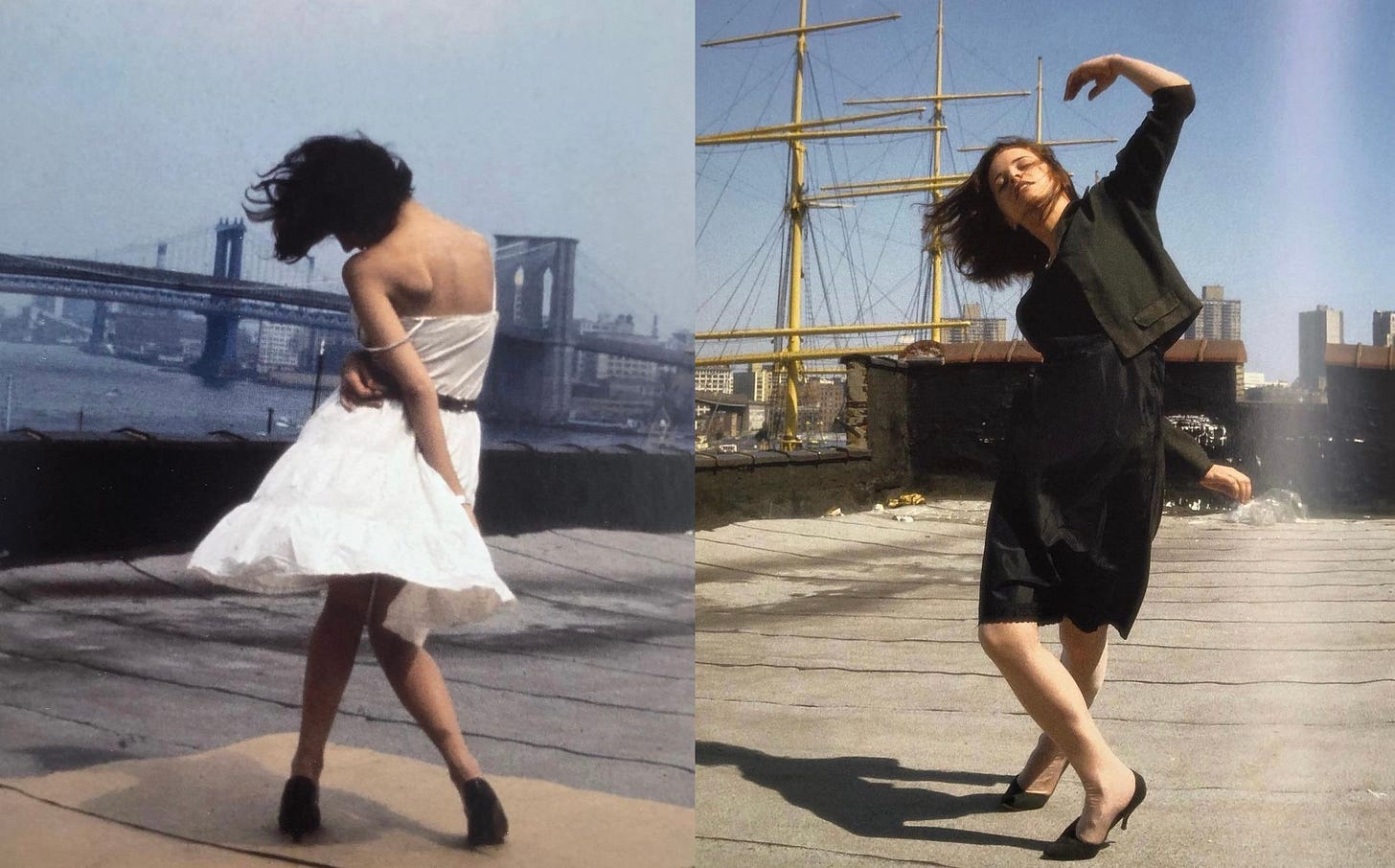circles
how do you chart your change?
I resolved recently to stop moving. I like to say that I am “but a big leaf” that felt like a potted plant in NYC, an artificial plant in Miami, and now, a firmly-rooted plant in a prettily painted bed in SF. Yet I still find myself back in NYC regularly — partly for my job, partly because I like the feeling of being so uprooted and in limbo that it kinda feels like I’m flying, and partly because New York is the best way I know to chart the evolution of my emotions. I used to think that the work of “becoming” was something that could happen anywhere, but I’ve since realized how much easier it is to become the person you want to be if you’re planted in an environment where the sun naturally bends you towards the kind of life you aspire to (New York never did this for me, hence why I didn’t stay).
My friends are loosely bicoastal too. We all oscillate between East and West coasts, chasing a feeling of newness that is unique to people who like creative destruction and being a bit of a disembodied brain. What’s unique about New York is the way it defines itself by its mutability. The promise of the city is that you’re untiedownable — able to invent and reinvent yourself hundreds of times over without ever needing to explain your previous self. Being able to float in this way is the cheapest definition of freedom, but still, the one that I was sold on as a teenager when I moved to this city to study film. People often ask me what that was like and I find it hard to give a coherent answer. “Hard” is what I usually say. “Lonely” is perhaps more accurate. I felt anxious and apathetic all the time, mostly from a lack of affirmation. I was constantly jittering, trying to place myself by cobbling together the small cues the world gave me about my worth. It never brought me enough comfort to stand still. I craved attention, seeking it out by reinventing myself again and again, trying to become impressive enough to be deemed special. What I didn’t realize was that the eventual conclusion of all this striving was constrained to only ever achieve one thing: being coveted on the basis of my accomplishments.
I now see “being taken seriously” at a young age as something that requires great sacrifice for not particularly fulfilling payoff. If you’re decently ambitious and intrinsically motivated, it’s probably not the respect of your idols that you need, and much more likely that you’re searching for genuine, earnest comfort in this world. Moving swiftly through life will expose you to enough false prophets for you to naturally become serious without your needing to expedite the process of losing your innocence. Maturity is a dime a dozen; it’s moments you can melt, put your head on someone’s lap, say the most unthought-through thing ever, and have them cock their head in bemusement and say “more?” that are rare. Comfort can be found in both what is and isn’t said: knowing that anything could be without an ounce of cost is the definition of acceptance and embedded in it, love. This is what grounds a person in the present enough to stand still. As it turns out, love is very much an in-the-moment activity. David Foster Wallace:
The really important kind of freedom involves attention, and awareness, and discipline, and effort, and being able truly to care about other people and to sacrifice for them, over and over, in myriad petty little unsexy ways, every day. That is real freedom. The alternative is unconsciousness, the default-setting, the "rat race"-the constant gnawing sense of having had and lost some infinite thing.
Now, every time I land in this city — whether JFK or LGA or EWR — I feel different. Walking through the streets of New York is a reflective exercise for me, a time to think about all the steps that came before and how much less sure of each one I was than I am now. I write this as I sit in my favorite coffee shop near Washington Square Park, sipping the coffee I’d get for myself as a treat sometimes during college but never on a random Tuesday afternoon without any real reason to reward myself, like today.
How I feel now: I’m happy, even if it’s not entirely evenly distributed. I feel baseline content almost all the time and frequently experience small pockets of euphoria bubbling to the surface — usually while listening to music, working out, or excitedly talking to beloved friends. I love being in love, even if it means staring in the face of destruction and becoming a destroyer. I’m actively writing and rewriting my definitions of all the most important things: how to live, what makes me happy, and what real love looks like.
David Lynch has a great quote where he says “You have to go away to come back.” This is New York to me: a city that I use as a calibration point to chart how I’ve changed. Every time I come back, I’m aware of how much more confident and concentratedly myself I’ve become (Do we all just circle the drain on who we are till we die?). Now, even when I’m stomping around the city that holds the most possibilities per capita, I know better than to believe these possibilities imply I should be tempted to abandon myself.


